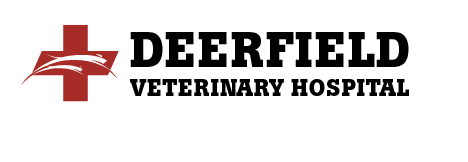Our Veterinary Services
Routine veterinary procedures provided in a safe and comforting animal hospital environment.
Veterinary Surgery

Our veterinarians perform routine surgical procedures by appointment, Monday through Friday. Our pet surgeons perform nearly all routine procedures on an out-patient basis, so your friend can go home the same day.
Surgery admissions are from 7am to 8:30am to allow same day postoperative recovery and discharge. We recommend pre-surgical blood work for all pets. Before we perform any procedure requiring anesthesia, our veterinarians strongly recommend and may require blood testing to confirm that your pet’s organs are functioning properly.
We routinely call our clients after surgical procedures are completed for updates and special care instructions. Discharge from the veterinary hospital occurs only after patients have completely recovered from the effects of general anesthesia (usually between 3pm – 5pm).

Routine procedures require withholding food 12 hours prior to admission and withholding water the morning of your appointment.
Routine Surgical Procedures
Castration is the surgical removal of the testicles. Such surgery is performed to eliminate sexual activities and render the dog sterile. Castration usually reduces a dog’s tendency to roam and fight. The procedure may also reduce the general level of aggression. However, castration is not a replacement for obedience training. We recommend neutering your pet at 4 to 6 months of age.
All patients receive a preoperative physical examination before surgery. We perform the operation with the pet under general anesthesia, lasting approximately 20 minutes. The surgeon makes one small incision in front of the scrotum before isolating the testicle and ligating the associated blood vessels and nerves. The reproductive organ is completely removed. Absorbable sutures are placed under the skin to prevent your dog from chewing them out.
Neutering will do the following:
- Decrease male aggression. Your pet may not be aggressive to you now, but as some intact males get older, they can become aggressive with family members. (30% reduction*)
- Decrease male territorial urine marking. (39% reduction*)
- Decrease the tendency for the male to roam. (40% reduction*)
- Decrease the risk of prostate infection and prostate cancer.
- Decrease the risk of perianal adenomas. These tumors form around the rectal area and can be difficult to remove.
- Decrease the risk of perianal hernias.
- Eliminate the risk of testicular tumors—the second most common tumor in intact male dogs. Fourteen percent of testicular tumors are malignant.
- Prevent unwanted pregnancies. Thousands of animals are euthanized at local animal shelters annually. Neutering your pet can help prevent this.
* A study conducted by Nielsen, Eckstein and Hart (JAVMA, July 15th, 1997)
Frequently Asked Questions
Male dog owners often ask the following:
No. Obesity is due to excessive calorie intake. Weight can be controlled with proper feeding and exercise.
Recovering from Pet Surgery
After general anesthesia and surgery, ample recovery time is required. On discharge, your pet may be a little woozy. This is a normal side effect of some anesthetics used during the procedure. Keep your pet as quiet as possible the first few hours after you get home. You may offer a small amount of water to your pet after it has been home for a half an hour or so. Watch for any vomiting. Wait an hour or so and offer more water and about half the amount of dinner you normally feed your pet if no vomiting occurs. If your pet vomits the small amount of water offered initially, withhold all food and water until the next morning. Be sure to keep your pet at a comfortable temperature the night after surgery. Pets who have had a general anesthetic have a harder time regulating their body temperature, and it is easy for them to get overheated or chilled when outdoor temperatures are at extremes.
Your pet may want to lick and clean the surgery site. A little investigation of the surgery site is normal, but please call Deerfield if you notice an excessive amount of chewing or licking. We may need to place an Elizabethan collar or a covering of some sort over the surgery site to keep your pet from licking or chewing the incision.
Be sure to check the surgery area daily. Slight discoloration and discharge from the incision may be normal, but bleeding usually is not. If you notice bleeding, swelling, or discharge from the incision or you have any concerns, please call. Be sure to give pain relievers or other medications as directed. Return your pet to its normal routine and offer regular amounts of food and water the day following surgery, unless instructed otherwise by the doctor.
Thank you for entrusting us with your pet’s care and surgery.
Make an Appointment
(417) 889-2727
OR


